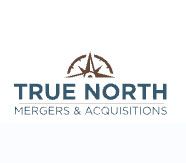Beyond The Purchase Price: What Is My Net After-Tax Proceeds?

True North Mergers & Acquisitions
February 17, 2025

Fixating solely on the transaction purchase price can be a crucial oversight for business owners contemplating a sale. While the headline figure may seem impressive, it often paints an incomplete picture of the actual financial outcome. Before the seller receives their proceeds, the purchase price is subject to adjustments, escrows, and other transaction expenses. The most valuable and critical number to focus on is the net-after-tax proceeds amount. A business owner who understands what they take home post-sale before beginning the process will be far more likely to set appropriate expectations about how much cash they will receive at the closing table.
In the world of mergers and acquisitions, understanding the concept of net after-tax proceeds is crucial for both buyers and sellers. Considering all related costs and taxes, this metric provides a clear picture of the actual financial gain from a transaction. Let's dive into the intricacies of net after-tax proceeds and why they matter in merger and acquisition deals.
What Are Net After-Tax Proceeds?
Net after-tax proceeds are one of the most analyzed figures on a company's financial statements. It represents the final amount a seller receives following the sale of a business after deducting all costs, expenses, and applicable taxes from the gross proceeds. This figure is significant in merger and acquisition transactions, as it reflects the actual financial benefit of the deal.
For sellers, it provides a realistic expectation of the actual financial gain from the sale, helping in financial planning and decision-making. Buyers pay attention to this amount, too, as it aids in the structuring or restructuring of deals to improve their tax efficiency and helps them understand the true cost of acquisition.
Calculating Net After-Tax Proceeds
Calculating the purchase price and determining the gross proceeds may not always be as straightforward as one might think. If you have hired an experienced mergers and acquisitions advisory firm and a competent investment banker leads your deal team, the purchase price has probably been negotiated to include not only cash but other forms of consideration, which broadly are the transaction terms.
The total consideration can include earnouts, interest-bearing seller notes with amortization rates, and rollover equity appreciation based on an internal rate of return of invested capital over a period culminating with a new liquidity event, along with other deferred payment terms that are often leveraged to increase the total consideration of the buyers offer.
Calculating the gross proceeds can be complicated because of the complexity of the terms and factors that could impact value over time. Then, you need to consider fees (legal, investment banker's commission, transaction tax advisors, and CPAs) and the taxes you will incur at the close of the transaction.
Understanding the amount you take home at the end of the day is crucial to knowing when you set your post-exit goals. Your mergers and acquisitions deal team should prepare a "Proceeds Analysis" so you have a reasonably accurate estimate of what you get to keep after fees and taxes, also known as net-after-tax (NAT) proceeds.
In a simplified all-cash-at-closing example, a business sale with a purchase price of $11 million, the calculation might look like this:
- Gross proceeds: $11,000,000
- Transaction costs (i.e., legal fees, tax analysis fees, advisory fees): -$600,000
- Subtotal before taxes: $8,600,000
- Taxes (assuming a 30% rate): -$2,580,000
- Net after-tax proceeds: $6,020,000
Other Factors Impacting Net After-Tax Proceeds
Another reason to use an experienced mergers and acquisitions investment banking firm is that other deal components need expert negotiation techniques.
1. Transaction Structure: Is the business entity an S or C Corp? The choice between stock and asset sales can have different tax implications. While asset sales may favor buyers, stock sales are often preferred by sellers. If the entity is an S Corporation, there are several IRS tax codes that help both the buyer and seller mitigate taxes.
2. Purchase Price Allocation: How are assets classified? Capital gains are taxed at different rates, and intangibles like "Goodwill" are taxed at different rates. Having an expert transaction tax advisor guiding the merger and acquisition deal team is usually worth the extra cost, as they pay more than their fees with savings.
3. Depreciation and Amortization: Previous depreciation deductions may need to be reassessed and taxed as ordinary income, potentially reducing net proceeds.
4. Purchase Price Adjustments: Post-closing adjustments based on working capital or other financial metrics can alter the final proceeds.
Maximize your Life's Work
When selling your company, it's not just about getting the biggest multiple to generate the highest price. When preparing your company for sale, think "Total Enterprise Value" or TEV. When considering TEV, negotiate the best terms for "Total Consideration." The transaction terms are where you have the greatest opportunity to achieve a premium price for the company from a sophisticated buyer. You should hire an investment banking team like True North Mergers & Acquisitions (TNMA). Michael Hubsmith, President of True North Mergers & Acquisitions, will coordinate the assignment of the TNMA deal, which has the right industry experience and has sold similar businesses to your company.
Subscribe to our Newsletter
Sign up for the latest industry insights from True North Mergers & Acquisitions.




